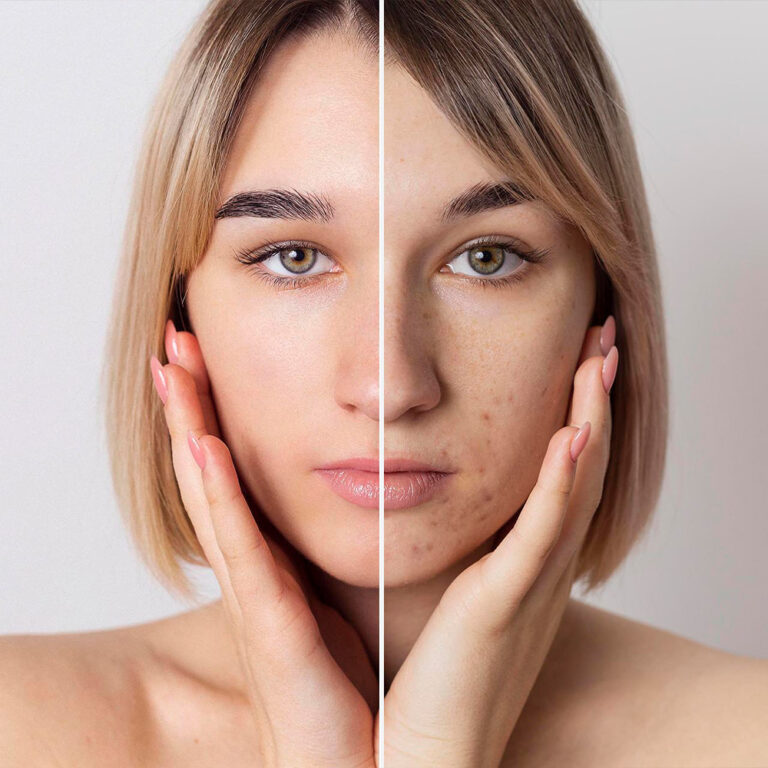Acne Scaring

Acne scarring occurs when severe acne damages the skin, leaving behind marks or depression. Scars form as part of the skin’s natural healing process, but when the body produces too much or too little collagen, it can lead to visible scars.
Causes of acne scarring can include:
Inflammation: The more severe the inflammation, the higher the risk of scarring. Cystic acne, which involves deeper skin layers, often results in scars.
Delayed or Improper Treatment: Untreated or poorly managed acne can increase the likelihood of scarring.
Skin Picking: Squeezing or picking at acne can damage the skin, leading to scars.
Managing acne before it becomes severe can prevent scarring. Keeping hands away from acne lesions helps prevent additional damage to the skin. UV exposure can worsen scars, so using sunscreen is crucial.
Treatment Options
Retinoids: Help promote cell turnover and reduce the appearance of scar. They also improve skin texture by boosting collagen production.
Silicone Gels/Sheets: Used to reduce raised scars like hypertrophic and keloid scars. They create a protective barrier that helps retain moisture and soften the scar tissue.
Microdermabrasion: Exfoliates the skin’s surface, reducing shallow scars. It also enhances the absorption of skincare products, making treatments more effective.
Microneedling: Involves using fine needles to create tiny punctures in the skin, stimulating collagen production. This process helps to improve skin elasticity and reduce the visibility of deeper scars.
Laser therapy: Resurfaces the skin, reducing the depth and visibility of scars. It can also target discoloration, evening out skin tone in the treated areas.
We offer different treatments at Diamed London Clinic for acne and acne scarring.
